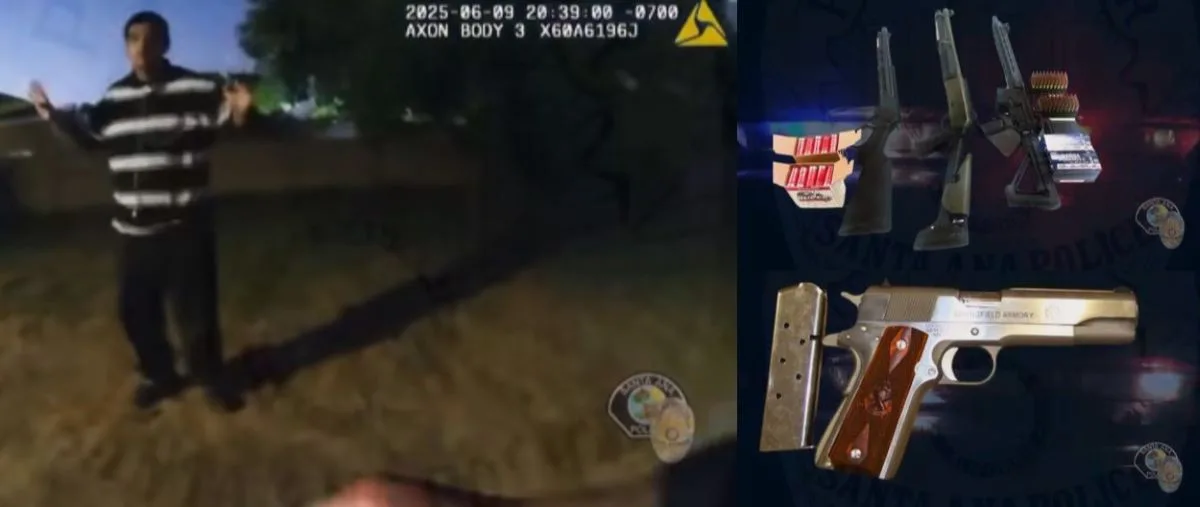Police officers recently responded to a report of an armed robbery where a subject allegedly brandished a handgun and stole the victim’s property and cash, according to the SAPD.
The stolen items were tracked to a nearby home, where the suspect ran inside and attempted to flee out the back but was quickly taken into custody.
The officers searched the home which led to the recovery of the handgun used in the robbery, along with two rifles, a shotgun, and ammunition.
All of the firearms were confiscated, and the suspect was booked into Juvenile Hall.
A juvenile in Santa Ana, California, was recently arrested following an armed robbery. During the arrest, Santa Ana Police Department officers seized a handgun, two rifles, a shotgun, and ammunition. The case raises serious legal questions about the consequences a minor could face when involved in violent crimes and illegal firearm possession.
Firearm Possession by a Minor
Under California Penal Code § 29610, it is illegal for anyone under 18 to possess a firearm without specific legal exceptions. In this case, the juvenile was found with multiple weapons, which significantly increases the severity of the charges.
- If charged as a misdemeanor:
- Up to 1 year in county jail
- Fines up to $1,000
- Informal probation
- A 10-year firearm ban after turning 18
- If charged as a felony:
- 16 months to 3 years in state prison or juvenile detention
- Formal probation
- A lifetime firearm ban if tried as an adult
Armed Robbery Charges
Robbery is always a felony in California. When a weapon is involved, it becomes armed robbery, which carries enhanced penalties under Penal Code § 211 and § 12022.53.
- Base sentence:
- 3 to 6 years for first-degree robbery
- 2 to 5 years for second-degree robbery
- Firearm enhancements:
- +10 years for using a gun
- +20 years for firing it
- +25 years to life if someone was seriously injured
Juvenile vs. Adult Court
Depending on the juvenile’s age, criminal history, and the severity of the offense, prosecutors may seek to try the minor as an adult. If that happens, the penalties listed above apply in full, and the case could fall under California’s Three Strikes Law, which significantly increases sentencing for repeat offenders.

